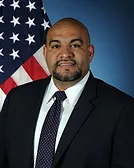Security Education & Training
EDPB issues guidance for cross-border data transfers in wake of Schrems II judgment
The EDPB’s FAQs resolve some open questions, such as whether there will be a grace period for companies relying on Privacy Shield, but raise other questions, such as what “supplementary measures” companies need to put in place to use Standard Contractual Clauses and Binding Corporate Rules.
July 28, 2020
Sign-up to receive top management & result-driven techniques in the industry.
Join over 20,000+ industry leaders who receive our premium content.
SIGN UP TODAY!Copyright ©2026. All Rights Reserved BNP Media.
Design, CMS, Hosting & Web Development :: ePublishing














